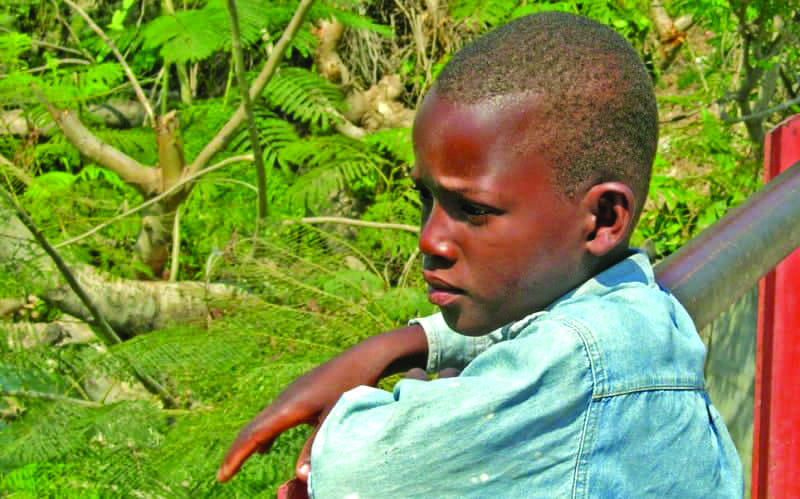Black children are twice as likely to enter U.S. foster care than white children – the culprit: our inattention to poverty

by Gaylynn Burroughs
When a recurrent plumbing problem in an upstairs unit caused raw sewage to seep into her New York City apartment, 22-year-old Lisa called social services for help. She had repeatedly asked her landlord to fix the problem, but he had been unresponsive. Now the smell was unbearable, and Lisa feared for the health and safety of her two young children.
When the caseworker arrived, she observed that the apartment had no lights and that food was spoiling in the refrigerator. Lisa explained that she did not have the money to pay her electric bill that month, but would have the money in a few weeks. She asked whether the caseworker could help get them into a family shelter. The caseworker promised she would help — but left Lisa in the apartment and took the children, who were then placed in foster care.
Months later, the apartment is cleaned up. Lisa still does not have her children.
It is probably fair to say that most women with children worry about their ability as mothers. Are they spending enough time with them? Are they disciplining them correctly? Are they feeding them properly? When should they take them to the doctor, and when is something not that serious?
But one thing most women in the United States do not worry about is the possibility of the state removing children from their care. For a sizable subset of women, though — especially poor black mothers such as Lisa — that possibility is very real.
Black children are the most overrepresented demographic in foster care nationwide. According to the U.S. Government Accounting Office (GAO), Blacks make up 34 percent of the foster-care population but only 15 percent of the general child population. In 2004, Black children were twice as likely to enter foster care as white children. Even among other groups of color, Black mothers are more likely to lose their children to the state than Hispanics or Asians — groups that are slightly underrepresented in foster care.
The reason for this disparity? Study after study reviewed by Stanford University law professor Dorothy Roberts in her book “Shattered Bonds: The Color of Child Welfare” (Basic Books/Perseus, 2002) concludes that poverty is the leading cause of children landing in foster care. One study, for example, showed that poor families are up to 22 times more likely to be involved in the child welfare system than wealthier families. And nationwide, Blacks are four times more likely than other groups to live in poverty.
But when state child welfare workers come to remove children from Black mothers’ homes, they rarely cite poverty as the factor putting a child at risk. Instead, these mothers are told that they neglected their children by failing to provide adequate food, clothing, shelter, education or medical care. The failure is always personal, and these mothers and children are almost always made to suffer individually for the consequences of one of the United States’ most pressing social problems.
The legal system often provides no haven for these parents. Based on even the flimsiest allegations, they are essentially presumed guilty and pressured to participate in various cookie-cutter services that often do not directly address the concerns that brought them to court. For example, after her children went into foster care, Lisa was asked to attend parenting classes, undergo a mental health evaluation, seek therapy and submit to random drug testing before her children could be returned. But child welfare authorities did not assist her in repairing her home or finding a new apartment, nor have they gone after her landlord for allowing deplorable conditions.
Race and poverty should not be a barrier to raising one’s children. But in order to prevent the entry of poor children into the foster care system, state and federal government must confront poverty-related issues. Until this country comes to terms with its culpability in allowing widespread poverty to exist, poor Black mothers will continue to lose their children to the state. And we will continue to label these women “bad mothers” to assuage our own guilt.
Gaylynn Burroughs is a staff attorney at the Bronx Defenders in New York City. She works in the family defense practice, where she represents parents accused of child neglect. The full text of this article appears in the Spring issue of Ms. magazine, available on newsstands and by subscription from www.msmagazine.com. This abbreviated version is reprinted with permission, and the Bay View thanks Ms. for tackling this widespread but ignored threat to Black families and the Black community.





